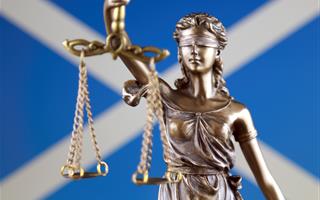In part 3 of their series on charity law changes in Scotland, Kenneth Pinkerton and Christine O'Neill KC from Brodies LLP, take a closer look at the issue of mergers.

This article is one in a series of articles on the Charities (Regulation and Administration) (Scotland) Bill ("the Bill"). If passed, the Bill will make significant changes to charity law in Scotland as it seeks to strengthen and update the current legislative framework.
Charity mergers and loss of potential legacy income
One area which Scottish charity law practitioners and experts have long been calling for reform to is the law relating to charity mergers in Scotland and the effect such mergers have on legacies bequeathed to one, or indeed all, of the "merging" charities.
The Bill introduces provisions which require publication of charity mergers and clarification on the direction of a "failed" legacy.
It is important in discussions regarding any charity merger to consider the potential loss of legacy income if one or other of the merging charities wind up and are removed from the Scottish Charity Register and in effect ceases to exist.
Dependent on the terms of the will, if one of the merging charities ceases to exist, then any legacies left to that charity may fail.
Charity mergers
After defining what is meant by "charity mergers", the Bill would entitle OSCR to receive notification following completion of a charity merger and to publish this information for public inspection.
What is a "charity merger"? A charity merger is defined as:
a. The transfer of all property, rights and liabilities of one or more charities ("transferor(s)") to another charity ("transferee"), and the wind up of the transferor(s); or
b. Amalgamation of two or more charities ("transferor(s)") resulting in the transfer of the collective property, rights and liabilities to a new charity ("transferee") and the wind up of the transferor(s).
For the purposes of the Bill the term 'merger' will also include situations in which a charity changes its legal form. It is commonplace for a charity established as a trust or unincorporated association to change its legal form to an incorporated legal vehicle such as a company or a Scottish Charitable Incorporated Organisation (SCIO).
As far as the public is aware, the charity and its operations stay the same, but behind the scenes a charity has been wound up and replaced by a new legal entity.
What happens once a charity merger completes?
Once a charity merger completes, namely following transfer of all property, rights and liabilities, the "transferee" charity would be required to notify OSCR "as soon as reasonably practicable". The exact content of this notice will be for OSCR to determine.
The date, along with other information that OSCR considers to be appropriate, must be made available by OSCR to the public via a record of charity mergers. In line with other changes throughout the Bill, OSCR will have discretion to determine the form and manner in which the record is made available.
Destination of legacies post-merger
As mentioned at the outset, if one of the merging charities ceases to exist, any legacies left to that charity may fail. In provisions that will be welcome to charities considering a merger, the Bill directs that where a charity ceases to exist because of a charity merger, the transferee noted on the record of charity mergers will be entitled to receive the legacy.
The Bill does however provide that the redirection of a legacy is subject to any contrary intention in the testator's will. Contrary intention is to be construed quite narrowly, meaning that in most cases a legacy will pass to the transferee charity following a merger. To have greater control over the direction of a legacy, testators may need to clearly state in their will that the legacy should not be paid to the transferee in the event of a merger.
As noted, this is just one in a series of updates relating to the Bill:
Read part 1.
Read part 2.
If you have any questions as to how the Bill will affect you or your organisation, please get in touch with the team at Brodies.